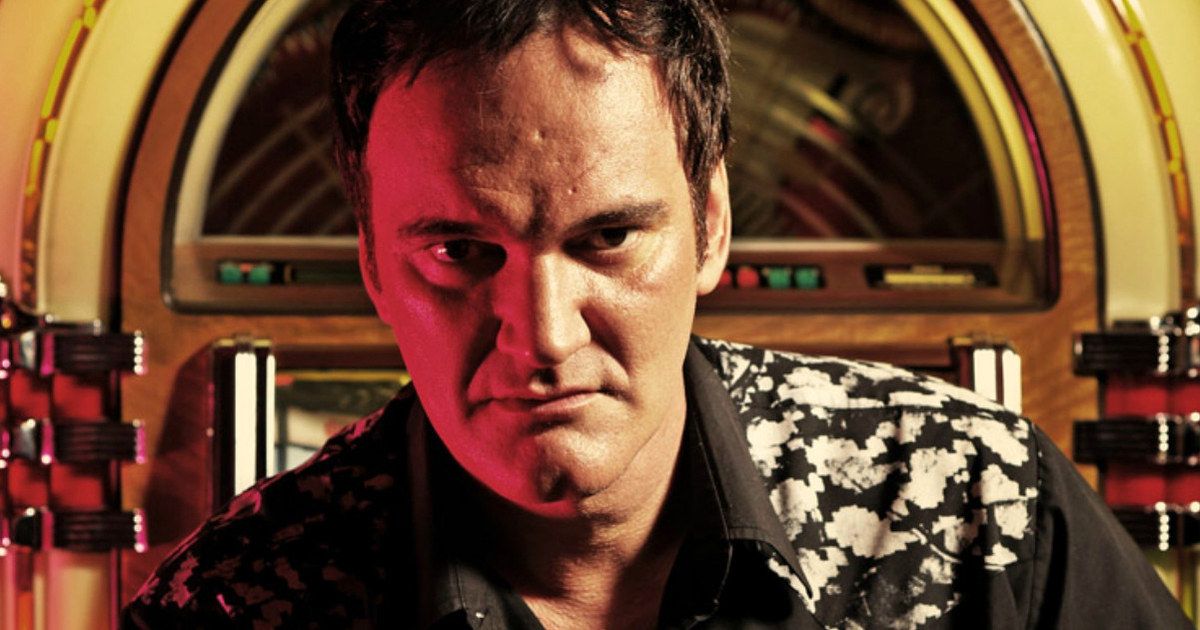Quentin Tarantino, the beloved and often controversial filmmaker, held a masterclass at the Lumiere Festival in Lyon, France earlier today, where he teased his new project, which may or may not be an actual film. The filmmaker revealed that he has spent the past four years researching the films that came out during the year 1970, and how it represented a turning point in both American and worldwide cinema. While he wouldn't offer too many specifics, he did have this to say to the crowd, "testing out" this premise publicly for the first time.
"Am I going to write a book? Maybe. Is it going to be a six-part podcast? Maybe. A feature documentary? Maybe. I'm figuring it out."
Quentin Tarantino was joined by Cannes Film Festival director Thierry Fremaux at the Lumiere Festival, which primarily features retrospectives on restored classics and also obscure gems for others to discover. This year, the filmmaker is curating a selection of films from 1970 that he will present throughout the week. The films are Arthur Hiller's Love Story, to Dario Argento's The Bird With The Crystal Plumage, Claude Chabrol's The Butcher, Billy Wilder' The Private Life Of Sherlock Holmes, Bob Rafelson's Five Easy Pieces, Jack Nicholson's Drive, He Said, Russ Meyer's Beyond The Valley Of The Dolls and Robert Altman's MASH. As for MASH the director revealed that, while the movie was once diminished by the TV series of the same name, he believes the film is making a comeback. Here's what he had to say at the festival, via Deadline.
"I do believe the film is coming back and taking its place as the true MASH. (20th Century Fox) wasn't paying any attention to in 1970 which was also the year of Tora! Tora! Tora! and Patton. They had two bigger fish to fry, then out comes MASH. Even though it takes place in Korea, it was the first movie to truly deal with the dilemma of Vietnam. But it was also a service comedy like no other. It's awash in blood and deals with the meat grinder aspect of war. The characters only choice of dealing with the dehumanization that war is to have a stoned mentality and get drunk. The movie could not have been made any year but that year."
The filmmaker revealed that he was inspired to explore this year after reading the 2009 book Pictures Of A Revolution: Five Movies And The Birth Of The New Hollywood by Mark Harris, which, as the director notes, explores the emergence of "New Hollywood". The director added that it was the best book written about cinema in the last decade. He added at the film festival that he isn't trying to make a top 10 list of films that came out that year, but, rather, the films that he would put in the "lower end of the Top 30 or Top 40," were more interesting to him. Here's what he had to say about how the films of that year represented a promise about the "possibilities of a new cinema."
"There were a lot of promises made of possibilities of a new cinema. It was almost like, could Hollywood handle this kind of freedom? Could the public handle it? The freedom seemed limitless. Directors could adapt any book, could shoot anything. There were no restrictions and that was maybe untenable. If you ask me, the promise was fulfilled."
Quentin Tarantino has previously teased that he plans on retiring from filmmaking after 10 films, which means he would only have two films left, if he held himself to that promise. The filmmaker hasn't said anything about what his next film project would be, but if he does turn this 1970 research project into a documentary, this could be what we'll see next on the big screen. Then again, even with four years of research under his belt, this 1970 project still seems to be in very early stages.

